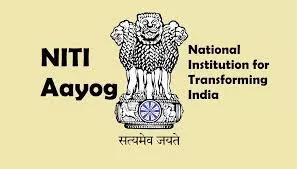In a groundbreaking study, scientists have unveiled an intriguing fact about our brains: despite their immense complexity, they process information millions of times slower than a typical Wi-Fi connection. While the human sensory system gathers a staggering one billion bits of data per second, our brains only manage to process a mere 10 bits per second. This revelation sheds light on why it often takes time for us to process what’s happening around us and why multitasking is not as effective as we might like.
The Brain’s Processing Paradox
Markus Meister, a study co-author from CalTech, explains, “Every moment, we are extracting just 10 bits from the trillion that our senses are taking in and using those 10 to perceive the world around us and make decisions.” This presents a paradox: what exactly is the brain doing to filter such a vast amount of information?
To put this into perspective, a typical Wi-Fi connection processes data at a rate of 50 million bits per second—millions of times faster than the brain’s processing speed. So why is the human brain so slow despite having over 85 billion neurons, each capable of transmitting signals faster than 10 bits per second?
The Brain’s Limited Processing Power
The reason lies in the brain’s collective processing power. Although individual neurons can transmit information rapidly, the brain’s overall speed for processing thoughts is significantly slower. This bottleneck is not a flaw but a deliberate design focused on prioritizing quality over quantity. The brain sifts through sensory data, focusing only on the most relevant information for survival and decision-making.
This slower processing rate is likely an evolutionary adaptation. Primitive nervous systems in early organisms evolved to prioritize basic survival tasks like navigating toward food or avoiding predators, rather than handling complex, multitasking scenarios. Over time, as the human brain evolved, this sequential approach to problem-solving persisted. Unlike computers that can perform millions of parallel calculations almost instantaneously, our brains focus on one possibility at a time, such as when a chess player examines one move, analyzes it, and then moves on to the next.
The Evolution of Human Thought
Despite being slower than machines, this sequential thought process has served humans well throughout history. The brain’s limitations may have actually been advantageous in terms of focusing attention on immediate, survival-critical tasks without being overwhelmed by unnecessary data.
“Our ancestors have chosen an ecological niche where the world is slow enough to make survival possible,” says Meister. “In fact, the 10 bits per second are needed only in worst-case situations, and most of the time our environment changes at a much more leisurely pace.” This filtering capability allows humans to thrive in complex environments without being bogged down by sensory overload.
Implications for Artificial Intelligence
These findings raise interesting questions about the future of artificial intelligence (AI). As machines continue to improve, their computational capabilities are rapidly catching up to, and in some cases, surpassing human processing speeds. With computing power doubling approximately every two years, machines may soon replicate, and even exceed, the abilities of the human brain in decision-making and problem-solving tasks.
However, this doesn’t diminish the unique qualities that make human intelligence so extraordinary. Despite our slower processing speeds, humans excel in creativity, emotional intelligence, and adaptability—traits that machines have yet to master.
Looking Ahead: Enhancing Human Cognition
The discovery of the brain’s speed limit opens up new avenues for research in both neuroscience and artificial intelligence. Understanding why this processing bottleneck exists could provide profound insights into human cognition, perception, and decision-making. Moreover, these insights may help enhance human brain function and lead to the development of smarter, more efficient technologies.
The study, published in the journal Neuron, highlights not only the limitations but also the extraordinary capabilities of the human brain—reminding us that sometimes, slower processing can lead to more refined, effective decision-making.
As technology continues to advance, the question remains: can machines ever truly replicate the intricate balance of speed, creativity, and emotional intelligence that defines human cognition?
This article is based on the latest findings published in the journal Neuron.












